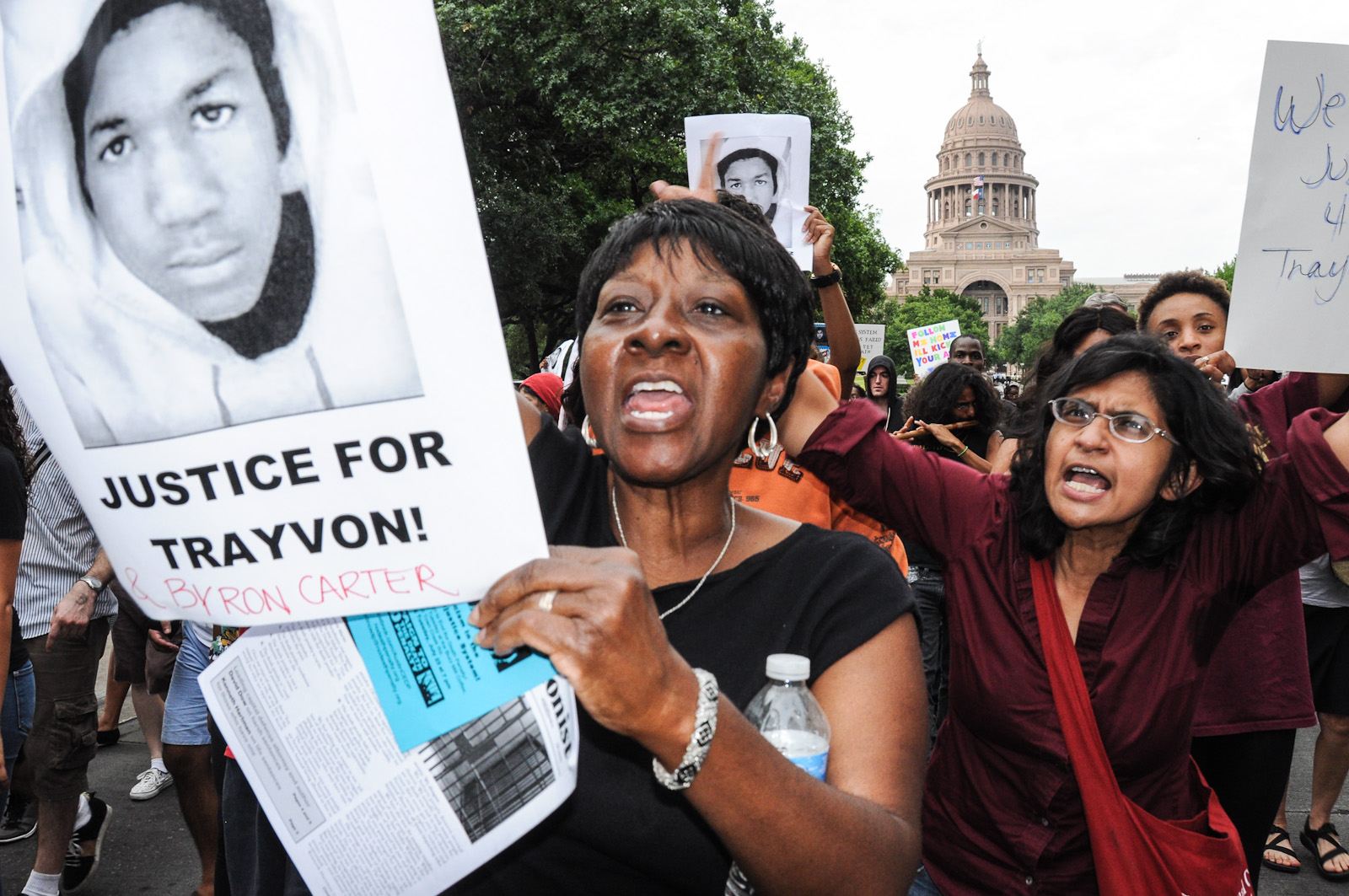|
Black Twitter
Black Twitter is an internet community largely consisting of African-American users on the social network Twitter focused on issues of interest to the black community in the United States.André Brock"From the Blackhand Side: Twitter as a Cultural Conversation", ''Journal of Broadcasting & Electronic Media'', 56(4), December 12, 2012 (hereafter Brock 2012).Apryl Williams and Doris Domoszlai"#BlackTwitter: a networked cultural identity", The Ripple Effect, Harmony Institute, August 6, 2013. Feminista Jones described it in ''Salon'' as "a collective of active, primarily African-American Twitter users who have created a virtual community proving adept at bringing about a wide range of sociopolitical changes."Feminista Jones"Is Twitter the underground railroad of activism?", ''Salon'', July 17, 2013. A similar Black Twitter community grew in South Africa in the early 2010s. User base According to a 2013 report by the Pew Research Center, 28 percent of African Americans who used the In ... [...More Info...] [...Related Items...] OR: [Wikipedia] [Google] [Baidu] |
Virtual Community
A virtual community is a social network of individuals who connect through specific social media, potentially crossing geographical and political boundaries in order to pursue mutual interests or goals. Some of the most pervasive virtual communities are online communities operating under social networking services. Howard Rheingold discussed virtual communities in his book, '' The Virtual Community'', published in 1993. The book's discussion ranges from Rheingold's adventures on The WELL, computer-mediated communication, social groups and information science. Technologies cited include Usenet, MUDs (Multi-User Dungeon) and their derivatives MUSHes and MOOs, Internet Relay Chat (IRC), chat rooms and electronic mailing lists. Rheingold also points out the potential benefits for personal psychological well-being, as well as for society at large, of belonging to a virtual community. At the same time, it showed that job engagement positively influences virtual communities of practice ... [...More Info...] [...Related Items...] OR: [Wikipedia] [Google] [Baidu] |
Hashtags
A hashtag is a metadata tag that is prefaced by the hash (also known as pound or octothorpe) sign, ''#''. On social media, hashtags are used on microblogging and photo-sharing services such as Twitter or Instagram as a form of user-generated tagging that enables cross-referencing of content by topic or theme. For example, a search within Instagram for the hashtag ''#bluesky'' returns all posts that have been tagged with that term. After the initial hash symbol, a hashtag may include letters, numerals, or underscores. The use of hashtags was first proposed by American blogger and product consultant Chris Messina in a 2007 tweet. Messina made no attempt to patent the use because he felt that "they were born of the internet, and owned by no one". Hashtags became entrenched in the culture of Twitter and soon emerged across Instagram, Facebook, and YouTube. In June 2014, ''hashtag'' was added to the ''Oxford English Dictionary'' as "a word or phrase with the symbol ''#'' in front o ... [...More Info...] [...Related Items...] OR: [Wikipedia] [Google] [Baidu] |
Irony
Irony (), in its broadest sense, is the juxtaposition of what on the surface appears to be the case and what is actually the case or to be expected; it is an important rhetorical device and literary technique. Irony can be categorized into different types, including ''verbal irony'', ''dramatic irony'', and ''situational irony''. Verbal, dramatic, and situational irony are often used for emphasis in the assertion of a truth. The ironic form of simile, used in sarcasm, and some forms of litotes can emphasize one's meaning by the deliberate use of language which states the opposite of the truth, denies the contrary of the truth, or drastically and obviously understates a factual connection. Definitions Henry Watson Fowler, in ''The King's English'', says, "any definition of irony—though hundreds might be given, and very few of them would be accepted—must include this, that the surface meaning and the underlying meaning of what is said are not the same." Also, Eric Partrid ... [...More Info...] [...Related Items...] OR: [Wikipedia] [Google] [Baidu] |
Trope (literature)
A literary trope is the use of figurative language, via word, phrase or an image, for artistic effect such as using a figure of speech. Keith and Lundburg describe a trope as, "a substitution of a word or phrase by a less literal word or phrase." The word ''trope'' has also come to be used for describing commonly recurring or overused literary and rhetorical devices, motifs or clichés in creative works. Literary tropes span almost every category of writing, such as poetry, film, plays, and video games. Origins The term ''trope'' derives from the Greek (''tropos''), "turn, direction, way", derived from the verb τρέπειν (''trepein''), "to turn, to direct, to alter, to change". Tropes and their classification were an important field in classical rhetoric. The study of tropes has been taken up again in modern criticism, especially in deconstruction. Tropological criticism (not to be confused with tropological reading, a type of biblical exegesis) is the historical study of ... [...More Info...] [...Related Items...] OR: [Wikipedia] [Google] [Baidu] |
Slavery In The United States
The legal institution of human chattel slavery, comprising the enslavement primarily of Africans and African Americans, was prevalent in the United States of America from its founding in 1776 until 1865, predominantly in the South. Slavery was established throughout European colonization in the Americas. From 1526, during early colonial days, it was practiced in what became Britain's colonies, including the Thirteen Colonies that formed the United States. Under the law, an enslaved person was treated as property that could be bought, sold, or given away. Slavery lasted in about half of U.S. states until abolition. In the decades after the end of Reconstruction, many of slavery's economic and social functions were continued through segregation, sharecropping, and convict leasing. By the time of the American Revolution (1775–1783), the status of enslaved people had been institutionalized as a racial caste associated with African ancestry. During and immediately ... [...More Info...] [...Related Items...] OR: [Wikipedia] [Google] [Baidu] |
African-American Work Song
A work song is a piece of music closely connected to a form of work, either sung while conducting a task (usually to coordinate timing) or a song linked to a task which might be a connected narrative, description, or protest song. Definitions and categories Records of work songs are as old as historical records, and anthropological evidence suggests that most agrarian societies tend to have them. Most modern commentators on work songs have included both songs sung while working as well as songs about work since the two categories are seen as interconnected. Norm Cohen divided collected work songs into domestic, agricultural or pastoral, sea shanties, African-American work songs, songs and chants of direction, and street cries. Ted Gioia further divided agricultural and pastoral songs into hunting, cultivation and herding songs, and highlighted the industrial or proto-industrial songs of cloth workers (see Waulking song), factory workers, seamen, lumberjacks, cowboys and miners. ... [...More Info...] [...Related Items...] OR: [Wikipedia] [Google] [Baidu] |
Spiritual (music)
Spirituals (also known as Negro spirituals, African American spirituals, Black spirituals, or spiritual music) is a genre of Christian music that is associated with Black Americans, which merged sub-Saharan African cultural heritage with the experiences of being held in bondage in slavery, at first during the transatlantic slave trade and for centuries afterwards, through the domestic slave trade. Spirituals encompass the "sing songs," work songs, and plantation songs that evolved into the blues and gospel songs in church. In the nineteenth century, the word "spirituals" referred to all these subcategories of folk songs. While they were often rooted in biblical stories, they also described the extreme hardships endured by African Americans who were enslaved from the 17th century until the 1860s, the emancipation altering mainly the nature (but not continuation) of slavery for many. Many new derivative music genres emerged from the spirituals songcraft. Prior to the end of the US ... [...More Info...] [...Related Items...] OR: [Wikipedia] [Google] [Baidu] |
Social Construct
Social constructionism is a theory in sociology, social ontology, and communication theory which proposes that certain ideas about reality, physical reality arise from collaborative consensus, instead of pure observation of said reality. The theory centers on the notion that meanings are developed in coordination with others rather than separately by each individual. It has often been characterised as neo-Karl Marx, Marxian or also as a neo-Immanuel Kant, Kantian theory, in that social constructionism replaces the transcendental subject with a concept of society that is at the same time descriptive and normativity, normative. While some social constructs are obvious, for instance money or the concept of currency, in that people have agreed to give it importance/value, others are controversial and hotly debated, such as the concept of self/self-identity. This articulates the view that people in society construct ideas or concepts that may not exist without the existence of peo ... [...More Info...] [...Related Items...] OR: [Wikipedia] [Google] [Baidu] |
BuzzFeed
BuzzFeed, Inc. is an American Internet media, news and entertainment company with a focus on digital media. Based in New York City, BuzzFeed was founded in 2006 by Jonah Peretti and John S. Johnson III to focus on tracking viral content. Kenneth Lerer, co-founder and chairman of ''The Huffington Post'', started as a co-founder and investor in BuzzFeed and is now the executive chairman. Originally known for online quizzes, "listicles", and pop culture articles, the company has grown into a global media and technology company, providing coverage on a variety of topics including politics, DIY, animals, and business. In late 2011, BuzzFeed hired Ben Smith of ''Politico'' as editor-in-chief, to expand the site into long-form journalism and reportage. After years of investment in investigative journalism, by 2021 '' BuzzFeed News'' had won the National Magazine Award, the George Polk Award, and the Pulitzer Prize, and was nominated for the Michael Kelly Award. BuzzFeed generates ... [...More Info...] [...Related Items...] OR: [Wikipedia] [Google] [Baidu] |
Shani O
Shani ( sa, शनि, ), or Shanaishchara ( sa, शनैश्चर, ), refers to the divine personification of the planet Saturn in Hinduism, and is one of the nine heavenly objects (Navagraha) in Hindu astrology. Shani is also a male Hindu deity in the Puranas, whose iconography consists of a black figure carrying a sword or danda (sceptre) and sitting on a Crow. He is the god of '' Karma (deeds), ''justice, and retribution and delivers results depending upon one's thoughts, speech, and deeds (karma). Shani is the controller of longevity, misery, sorrow, old age, discipline, restriction, responsibility, delays, ambition, leadership, authority, humility, integrity, and wisdom born of experience. He also signifies spiritual asceticism, penance, discipline, and conscientious work. He married twice, first to Neela, the personification of the Blue Sapphire gemstone and second to Manda, a Gandharva princess. Planet ''Shani'' as a planet appears in various Hindu astronomical te ... [...More Info...] [...Related Items...] OR: [Wikipedia] [Google] [Baidu] |
BoingBoing
''Boing Boing'' is a website, first established as a zine in 1988, later becoming a group blog. Common topics and themes include technology, futurism, science fiction, gadgets, intellectual property, Disney, and left-wing politics. It twice won the Bloggies for Weblog of the Year, in 2004 and 2005. The editors are Mark Frauenfelder, David Pescovitz, Carla Sinclair, and Rob Beschizza, and the publisher is Jason Weisberger. One report named ''Boing Boing'' as the most popular blog in the world until 2006, when Chinese-language blogs became popular, and it remained among the most widely linked and cited blogs into the 2010s. History ''Boing Boing'' (originally ''bOING bOING'') started as a zine in 1988 by married duo Mark Frauenfelder and Carla Sinclair. Issues were subtitled ''"The World's Greatest Neurozine"''. Associate editors included Gareth Branwyn, Jon Lebkowsky, Paco Nathan, and David Pescovitz. Along with ''Mondo 2000'', ''Boing Boing'' was an influence in the development ... [...More Info...] [...Related Items...] OR: [Wikipedia] [Google] [Baidu] |
Black Enterprise
''Black Enterprise'' is a black-owned multimedia company. Since the 1970s, its flagship product ''Black Enterprise'' magazine has covered African-American businesses with a readership of 3.7 million. The company was founded in 1970 by Earl G. Graves Sr. It publishes in both print and on digital, an annual listing of the largest African-American companies in the country, or "B.E. 100s", first compiled and published in 1973. In 2002 the magazine launched a supplement targeting teens, ''Teenpreneur''. ''Black Enterprise'' also has two nationally syndicated television shows, ''Our World with Black Enterprise'' and ''Women of Power''. History The magazine was founded by Earl G. Graves Sr. In January 2006, he named his eldest son, Earl G. Graves Jr. (known as "Butch"), the company's chief executive officer. Butch joined the company in 1988 after earning his M.B.A. from Harvard University; he received his bachelor's degree in economics from Yale University in 1984. He also sits on ... [...More Info...] [...Related Items...] OR: [Wikipedia] [Google] [Baidu] |






